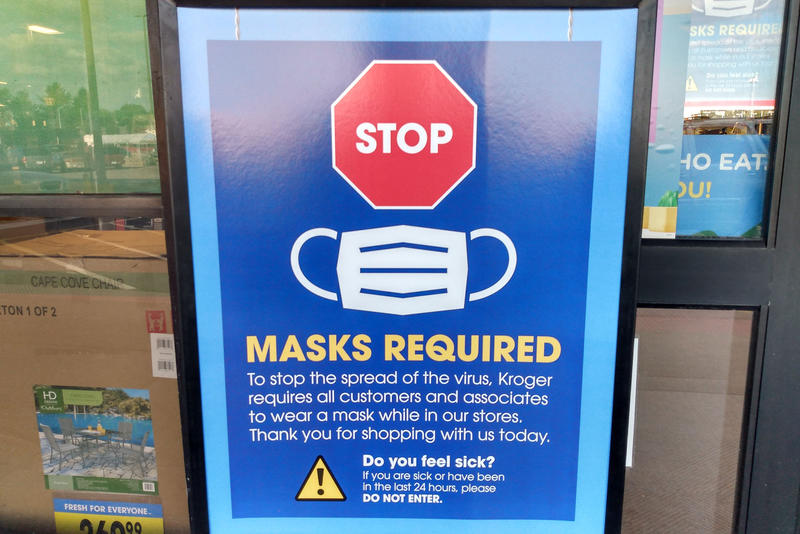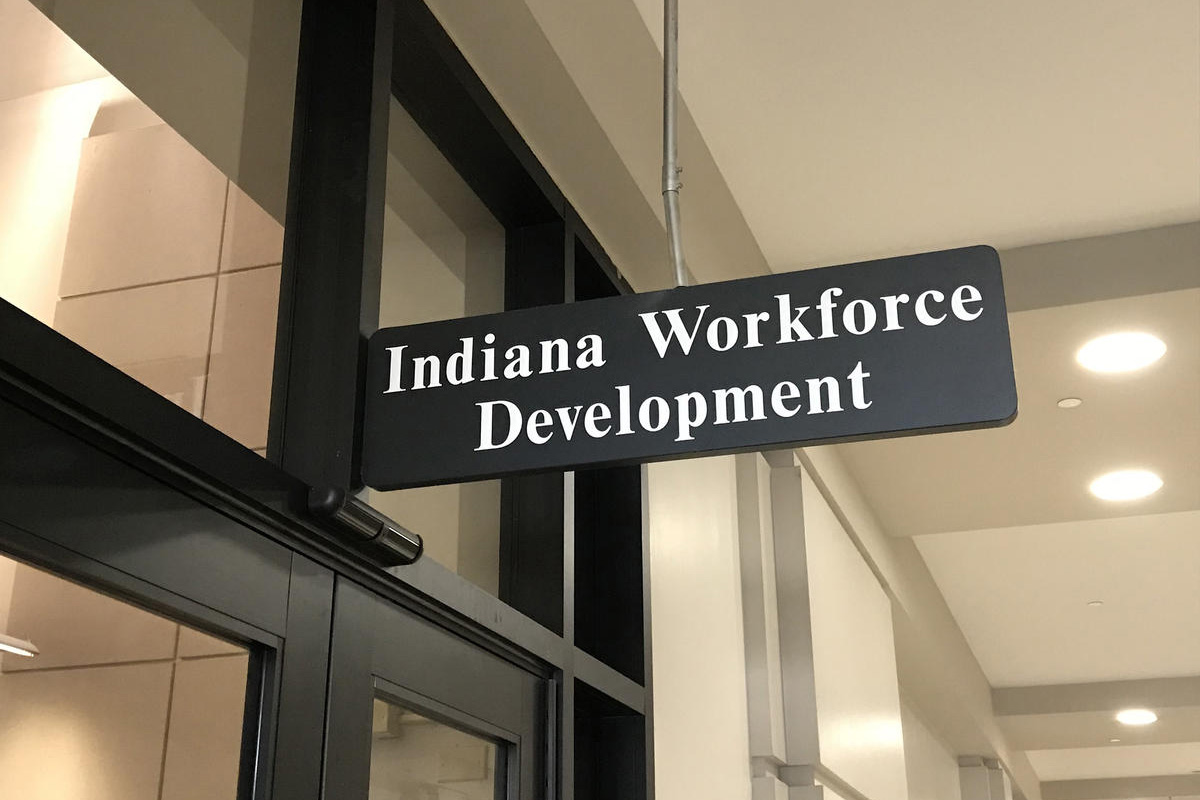
Indiana's mask mandate went into effect July 27. (Lauren Chapman/IPB News)
Malls, grocery stores and restaurants in Indiana cities such as Bloomington have been displaying signs for weeks requiring costumers to wear masks to go inside.
But it wasn’t until late July that Indiana’s governor issued a statewide mask mandate.
READ MORE: Statewide Mask Order Taking Effect Monday
Hours later, the state’s attorney general issued a nonbinding opinion saying Gov. Eric Holcomb had no authority to issue the mandate or to create laws and enforce punishments for breaking them.
“According to Attorney General (Curtis) Hill, the express delegation of authority that the General Assembly gave the governor ... would have to specifically mention masks. And that’s silly, point blank,” says Jody Madeira, a professor of Law and Medicine at Indiana University’s Maurer School of Law.
Madeira believes Holcomb’s order is the type of action Indiana’s emergency powers law was intended to allow.
“There's not separate emergency laws to cover different types of emergencies. For example, if we were to have a forest fire that would threatens part of the state. There isn't a forest fire emergency law, there's not a pandemic emergency law. It's just a broad grant of authority to handle any emergency,” she says.
READ MORE: Hill: Holcomb Doesn't Have Authority To Issue Mandate
The legislative session ended in March, but the attorney general says lawmakers would need to reconvene at the statehouse to pass specific laws.
Madeira says that could put lawmakers and staff at risk.
Hill’s opinion also focused on penalties – he questions if the governor can unilaterally create penalties and send police to enforce them.
Official Opinion 2020-6 by Indiana Public Media News on Scribd
“There's some broad, vague wording in the emergency statute that if push came to shove, maybe the governor would try to say this could be shoehorned under this provision. But I think the better legal argument is that the governor actually does not have the power to do this," says Steve Sanders, who teaches Constitutional Law at the IU law school.
READ MORE: Holcomb Confident In Authority To Issue Mask Mandate
He thinks that might be why Holcomb retreated on enforcement – to avoid losing the mandate entirely.
“If somebody had actually been arrested or fined and hold up in court, then they could have made their argument that this law exceeded the governor's authority, and it would have been a mess. It could have potentially resulted in his order being struck down, it would have been embarrassing for him, it might have been more dangerous for the state's health,” Sanders says.
With many already wearing masks in public, keeping a relatively toothless mandate might help positively reinforce good behavior.
And if Holcomb decided to try to enforce the penalties anyway, it might be hard for him to defend them without his AG on board.
“The Attorney General's Office would be the one that would have to defend it, if it were challenged in court. And this is an odd situation where the Attorney General's Office has already said basically, the governor doesn't have the power to do it," Sanders says.
READ MORE: Holcomb Reverses Course: No Penalty In Mask Mandate
Jody Madeira agrees that Holcomb was acting pragmatically by deciding not to encourage law enforcement to harshly enforce the mandate.
“You can either double down or you can say, 'Well, OK, I still think it's really important. And I can, in principle, not change much, but I can ease up on in my rhetoric.’ And so I think that's the approach he was taking,” she says.
For his part, Holcomb says his order is based on the law and public health. Last week, he said he evaluated the order carefully and didn’t live under the fear of lawsuits.
For the latest news and resources about COVID-19, bookmark our Coronavirus In Indiana page here.










